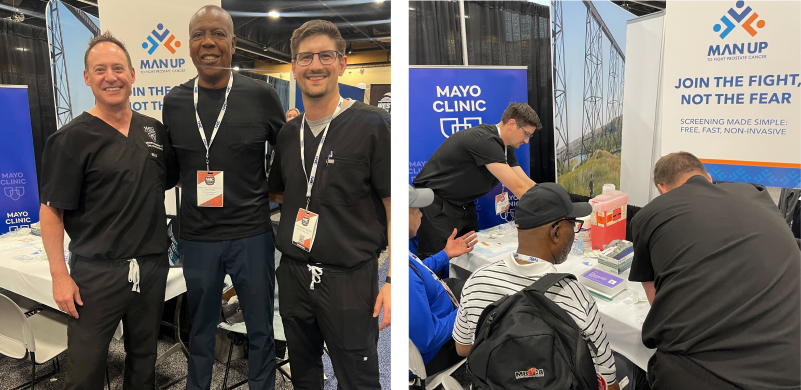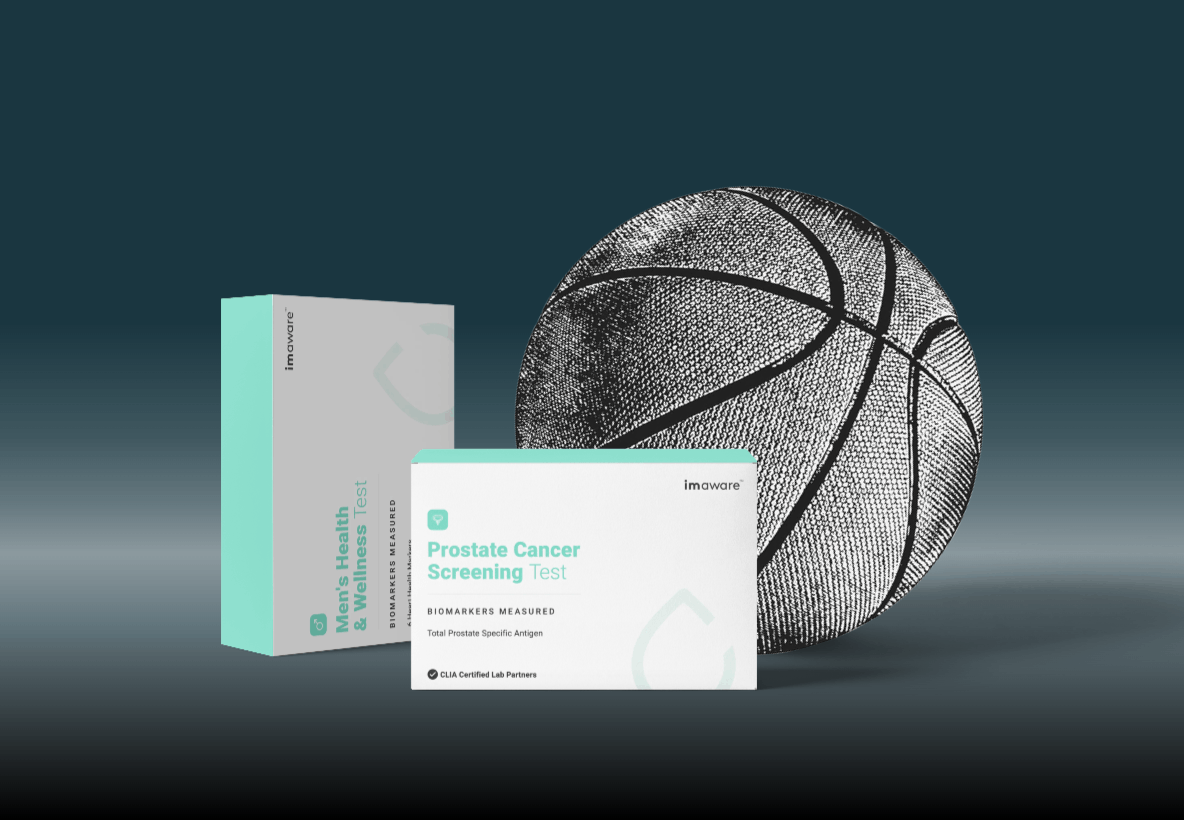Over the course of one weekend, 84 renowned basketball coaches and conference attendees gained game-changing insights that will support their prostate health journeys for life.
imaware, Mayo Clinic and ManUp brought an all-star lineup to the 2024 NCAA Final Four events in Phoenix this April, joining forces to take the offensive against prostate cancer. Offering free prostate-specific antigen (PSA) tests to coaches and event-goers, the team successfully rallied 227 individuals to participate in the simple finger-prick screening tests with startling results: 1 in 3 unknowingly had elevated PSA levels.

“Around 1 in 8 men will be diagnosed with prostate cancer during their lifetime, so we knew these screening results would be impactful, but it’s still shocking to see the numbers after just one weekend of testing,” said Michael Sarajian, Chief Growth Officer at imaware.
Elevated PSA levels can be caused by prostate cancer or several other factors, making further assessment necessary to determine a diagnosis. As such, Mayo Clinic’s Dr. Humphreys carefully assigned risk levels to the 84 patients needing intervention based on their elevated data and relevant personal details. This way, he could evaluate, escalate and communicate the right level of care and next steps to each individual.
NCAA participant results included:
- 11 urgent cases needing immediate attention and a confirmatory PSA test
- 12 critical cases requiring immediate consultation due to high risk of cancer
- 47 abnormal results needing surveillance and follow-ups; 8 need to repeat testing within six months, and 39 within 12 months
- 14 abnormal results of unknown significance needing surveillance but low risk, so advised to retest in 1 to 3 years
In the United States, prostate cancer is the second leading cause of death in men and will claim about one in 44 men’s lives. In 2024 alone, the American Cancer Society estimates there will be almost 300,000 new diagnoses and 35,000 related deaths. But there’s good news: with early detection, the five-year relative survival rate is over 97%, and about 3.3 million diagnosed men in the U.S. live on. Though prostate cancer is more common in men over 65, it is crucial for men to know their personal risk factors as they can affect the recommended age and frequency of screening tests.
.png)
imaware’s at-home Prostate Cancer Screening Test was designed to make the proactive screening process easy and convenient by requiring just one quick finger-prick. The PSA biomarker is also included in imaware's partner panel menu so that wellness companies, employers, healthcare providers and other organizations can make critical health screenings a more accessible, personalized experience for their end users.
"This weekend reinforced the importance of raising awareness about prostate cancer, its risk factors and the proactive steps that should be taken against it," said Ashley Williams, Head of Customer Experience at imaware. "It was also a reminder of what we've always worked toward at imaware, which is to empower better health through advanced solutions and strategic partnerships."

The imaware team continues to build upon the event’s momentum, spearheading a movement that enables life-altering learnings at scale.














.svg)




